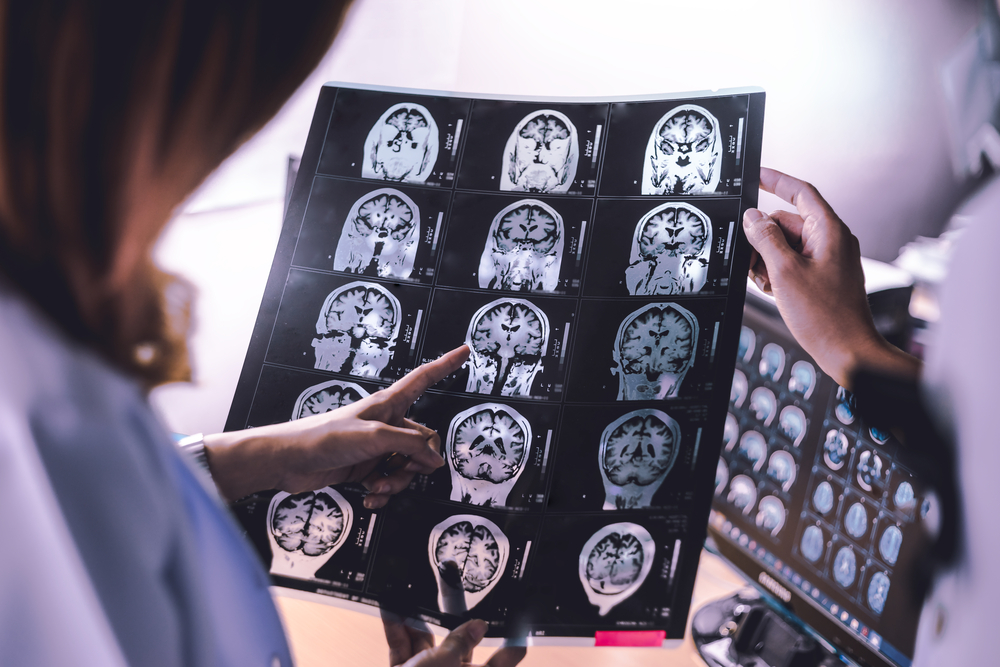#MSParis2017 – Ibudilast Slows Loss of Brain Tissue in MS Patients, Phase 2 Trial Shows

The Japanese company MediciNova‘s anti-inflammatory agent ibudilast slows multiple sclerosis patients’ brain shrinkage and their loss of the protective myelin coating around nerve cells, a Phase 2 clinical trial shows.
Robert J. Fox of Ohio’s Cleveland Clinic Neurological Institute presented the results at the 7th Joint ECTRIMS-ACTRIMS Meeting in Paris, Oct. 25-28. The title of his presentation was “SPRINT-MS/NN 102 phase II trial of ibudilast in progressive MS: top-line results.”
Ibudilast (MN-166) reduces nerve cell inflammation by targeting pro-inflammatory signaling pathways. Previous studies suggested that it could protect the nerve cells of relapsing-remitting MS patients. The Phase 2 trial involved patients with the more severe progressive form of MS.
Although ibudilast is still in U.S. clinical trials, Japanese regulators have approved it as an MS treatment.
It works by inhibiting the phosphodiesterase type 4 and 10 enzymes (PDE-4 and PDE-10), and the macrophage migration inhibitor factor, or MIF. It also inhibits three cytokines, or proteins, that promote inflammation: IL-1ß, TNF-a, and IL-6.
The Phase 2 SPRINT-MS trial (NCT01982942) tested Ibudilast’s safety and effectiveness in progressive MS patients, and their ability to tolerate it. SPRINT-MS stands for Secondary and Primary Progressive Ibudilast NeuroNEXT Trial in Multiple Sclerosis.
The team recruited 255 patients aged 18-65 with primary or secondary progressive MS. Participants must have shown clear signs of disability progression in the two years before enrollment.
Researchers randomly assigned patients to ibudilast or a placebo. Patients were followed for 96 weeks, with doctor’s evaluations and imaging assessments of patients’ brains performed every 24 weeks.
One of the study’s primary goals was to assess changes in brain shrinkage, using a measure known as brain parenchymal fraction, or BPF. The other major goals were to evaluate ibudilast’s safety and patients’ ability to tolerate it, versus a placebo.
Secondary goals were to assess patients’ cortical atrophy, a measure of brain degeneration; magnetization transfer ratio, a measure of brain abnormality; and optical coherence tomography, which measures the functioning of the eyes’ retina.
Ibudilast met the trial’s primary objective of reducing brain shrinkage, researchers said. “Compared to placebo, ibudilast treatment was associated with a 48 percent slowing in the rate of atrophy [shrinkage] progression,” Fox said.
Researchers said 92 percent of the ibudilast-treated participants experienced adverse events, versus 88 percent in the placebo group. Gastrointestinal adverse events were the ones that ibudilast patients reported the most. Fifty-one percent said they experienced nausea, diarrhea, abdominal pain or vomiting. That compared with 39 percent of the placebo group.
Nine percent of the ibudilast group reported depression, compared with 3 percent of the control group. Five percent of ibudilast patients reported fatigue, versus 1 percent of the placebo group.
Upper respiratory tract infections, skin infections, and neck pain were the most common adverse events that the placebo group reported.
“No increased rate of serious adverse events” were reported, said Fox, adding that there were “no opportunistic infections” or signs of cancer.
As for tolerability, 30 percent of ibudilast patients discontinued treatment — 18 percent because of adverse events. And 25 of the placebo group stopped treatment — 12 percent because of adverse events.
In terms of meeting secondary trial goals, “ibudilast was associated with an 77-82 percent slowing” in the rate of magnetization transfer ratio decline, Fox said. MTR decline is correlated with both demyelination, or loss of the protective coating around nerve cells, and loss of nerve cell fibers called axons. Demyelination is a hallmark of MS.
Overall, the results suggested that ibudilast slows MS patients’ brain shrinkage and demyelination, researchers said.
“Analysis of optical coherence tomography, cortical atrophy, and clinical outcome [doctors’ assessments] is under way, as well as additional safety and laboratory analyses,” Fox added.






